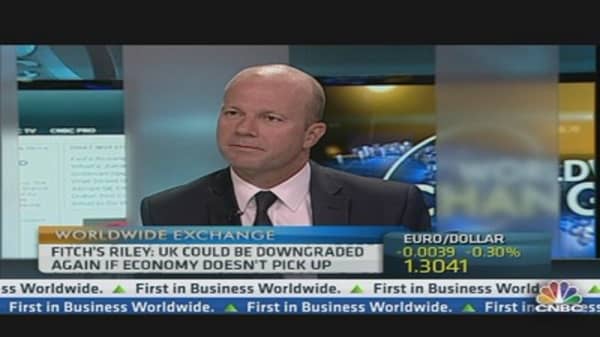The bad news for the U.K. keeps getting worse. Last week, a second ratings agency downgraded the country's triple-A rating and on Monday, data showed British household spending is declining.
The downgrade by Fitch Ratings on Friday is another humiliating blow for Britain's finance minister George Osborne, an advocate of austerity measures in the face of flatlining growth who is facing increasing criticism.
"The U.K. no longer adds up to a triple-A rating, that is why we downgraded it on Friday," David Riley, global managing director of sovereign ratings at Fitch Ratings, told CNBC's "Worldwide Exchange" on Monday.
"The bottom line is that the U.K. level of national debt has more than doubled, and that is just not consistent with it retaining its triple A-rating... the government has slowed down the pace of deficit reduction and the deficit is not really changing."
Riley said the downgrade was not as a result of Osborne's austerity measures, but added that the U.K. had little scope for significant fiscal stimulus.
"Can the U.K. go on a major fiscal stimulus exercise? We do not actually think there is much room for maneuver for them to do that, at least from a ratings perspective," Riley said.
"The actual evidence that if you do tax cuts you automatically get more revenue is not very strong, otherwise lots of governments would be doing that."
However, Bill Gross, manager of the world's largest bond fund, Pimco, said efforts by Britain and much of the euro zone to cut debt with severe austerity measures risk stifling economic recovery.
"The U.K. and almost all of Europe have erred in terms of believing that fiscal austerity in the short term is the way to produce real growth. It is not," Gross told the Financial Times newspaper on Monday. "You have got to spend money."





